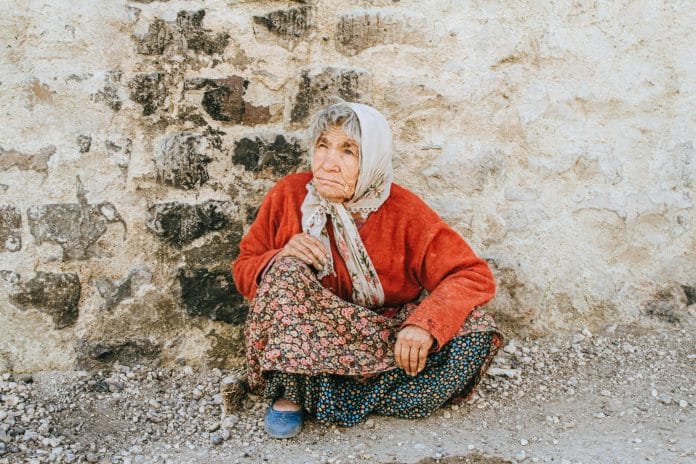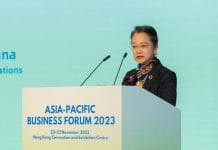By Professor Grace Lee , Dr Sharon Koh, Dr Vivien Chen and Dr Nicola Charwat, Academics from Monash University in Australia and Malaysia
In the relentless battle against poverty, one undeniable truth persists: the face of poverty is still predominantly female. The United Nations’ recent gender snapshot for 2023 highlights a stark reality — women aged 55 to 59 are more likely to dwell in extreme poverty than their male counterparts. The implications of this gendered poverty are far-reaching, with the UN predicting that 340 million women and girls will be grappling with extreme poverty by 2030 unless we alter our course.
The current scenario underscores the need for innovative solutions that not only address financial disparities but also empower women holistically. Microcredit and micro-enterprise development have been lauded for their capacity to empower women and alleviate poverty. As we approach the 20th commemoration of the International Year of Microcredit, first launched in 2005 by the United Nations, the objective to promote greater access to credit for economically disadvantaged households remains a priority. Empowering poor and low-income households through access to credit contributes to a more secure livelihood and a sustainable future. When we strengthen women’s economic security, the benefits flow to their families’ nutrition and health, children’s education, and their broader communities.
While these initiatives have received acclaim for their ability to uplift women, a cautionary note is sounded regarding the prevalent neoliberal model, which often burdens vulnerable borrowers with high costs and perpetuates a cycle of debt. For example, evidence has emerged of families becoming enslaved in Cambodian brick factories with dangerous work conditions as a result of debts they could not repay. Overindebtedness has other harmful impacts, such as losing assets pledged as security or having to forego meals to make repayments. The stress of unmanageable debt can lead to poorer mental health, relationship problems, homelessness, and at times even suicide.
Amidst the challenges, our research shows that microcredit can be different and better. We collaborated with the non-profit organisation Women of Will (WoW) Malaysia to examine the impact of their microcredit and mentoring program for low-income female breadwinners, predominantly single mothers. With support from corporate funders, WoW provides interest-free microcredit, business coaching, skills training and mentoring to help micro-entrepreneurs build sustainable livelihoods.
Leading transnational organisations promote microcredit-enabled entrepreneurship to address poverty and bridge the gender gap. Corporate-funded, interest-free microcredit enables women to focus on building their microenterprises without the worry of escalating debt. Corporate support also shifts the focus towards empowering women, fostering their well-being, and away from the demanding repayment schedules characteristic of mainstream microcredit.
The impact of WoW’s program is nothing short of remarkable. Our studies reveal a cascade of positive outcomes, with 79.46% of participants growing their microenterprises and 80.33% improving their business knowledge and increasing their household income. Our natural experiment showed that WoW women had better financial capability, well-being and stability than those who had not participated in the program. The positive impacts were also reflected in participants’ personal and family lives. 71.89% of WoW participants reported that they could spend more time with their children. This, in turn, had positive flow-on effects on their children’s education.
84.86% of women reported higher confidence levels after participating in WoW’s program. Likewise, their increased empowerment and self-efficacy in entrepreneurship were evident. Participants had improved capacity to develop and market new products, predict client demand, and network. They also acquired digital skills, which helped them manage the challenges of the COVID-19 pandemic.
Access to affordable finance is often a challenge for single mothers juggling childcare with insecure work. Interest-free microcredit enables participants to focus on developing their microenterprise without the worry of escalating debt. Practical skills training helps them to develop their microenterprise, manage their finances, improve their customer service, broaden their customer base and develop new and innovative products which attract more sales. Each participant is mentored and given individualised support in growing their microenterprise.
But it’s not just about growing individual microenterprises. WoW participants gain community support and social networks. Participants can join the group initiatives to fulfil corporate orders for festive hampers and other products to earn additional income. Supportive leaders and peers share with the newer recruits the strategies that they have learned to help them overcome similar challenges and thrive. Many go on to become leaders in their communities who have a positive influence on other families.
The positive impact of these initiatives on women’s financial security and well-being reflects the value of collaboration between corporations and women’s groups. Yet the significant role that corporations can have on gender equality and empowerment is overlooked and under-utilised. We have made significant strides towards gender equality in corporate leadership. Still, millions of women continue to live in poverty around the world. Even in Australia, older women are the fastest-growing group of homeless individuals, and many are escaping family violence. In 2020, 405,000 women aged over 45 years were at risk of homelessness. This sadly often follows a lifetime of caring for others and economic disadvantage.
Corporate partnerships with women’s groups can help contribute much-needed solutions to the problem of gendered poverty. At the same time, corporations benefit from contributing to socially impactful projects. ESG investments have grown progressively popular, and making a genuine impact on disadvantaged communities is attractive to investors and talented employees. Society increasingly expects businesses to be a force for the greater good. It is high time we harnessed this to help at-risk women build sustainable livelihoods and foster a fairer world.









